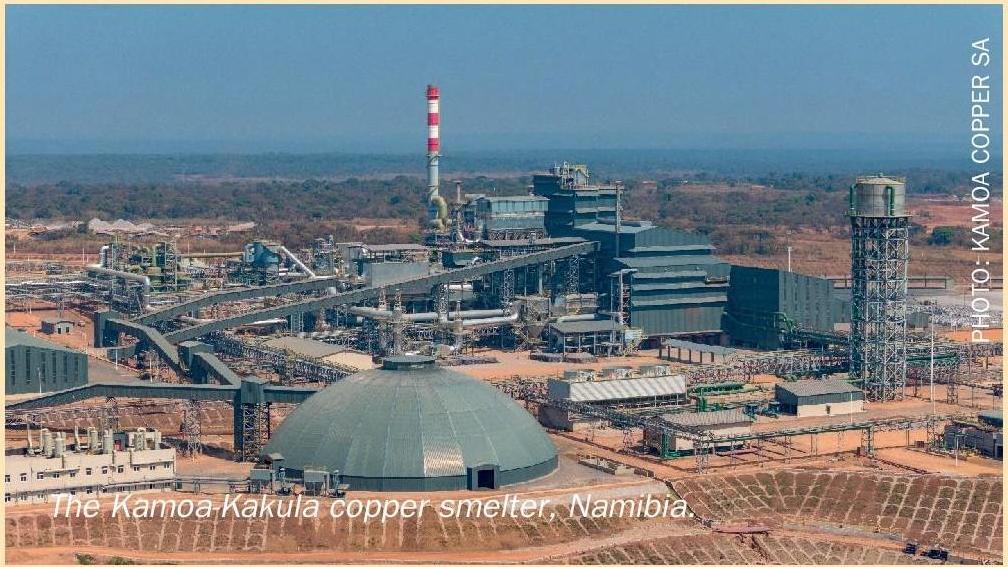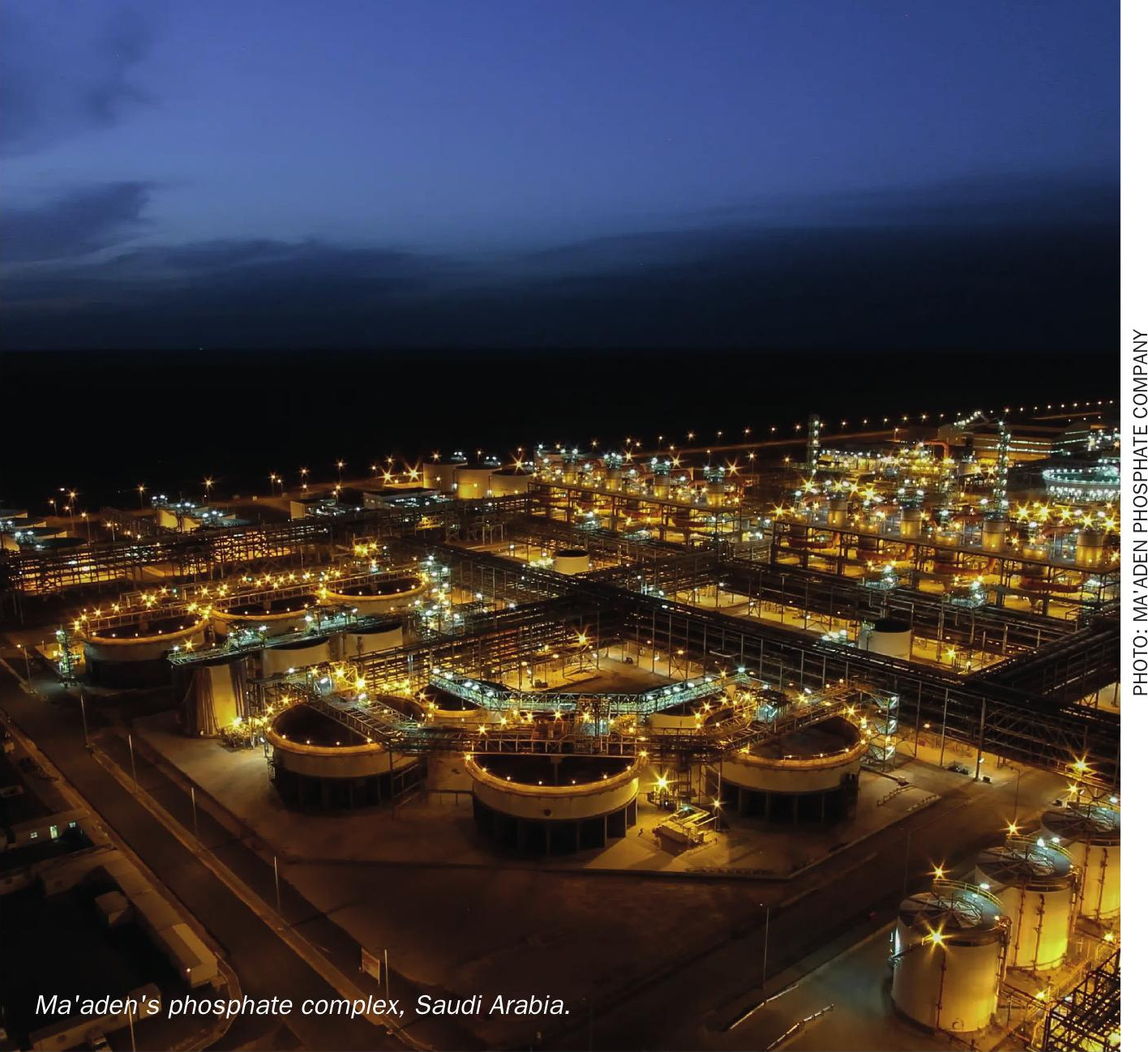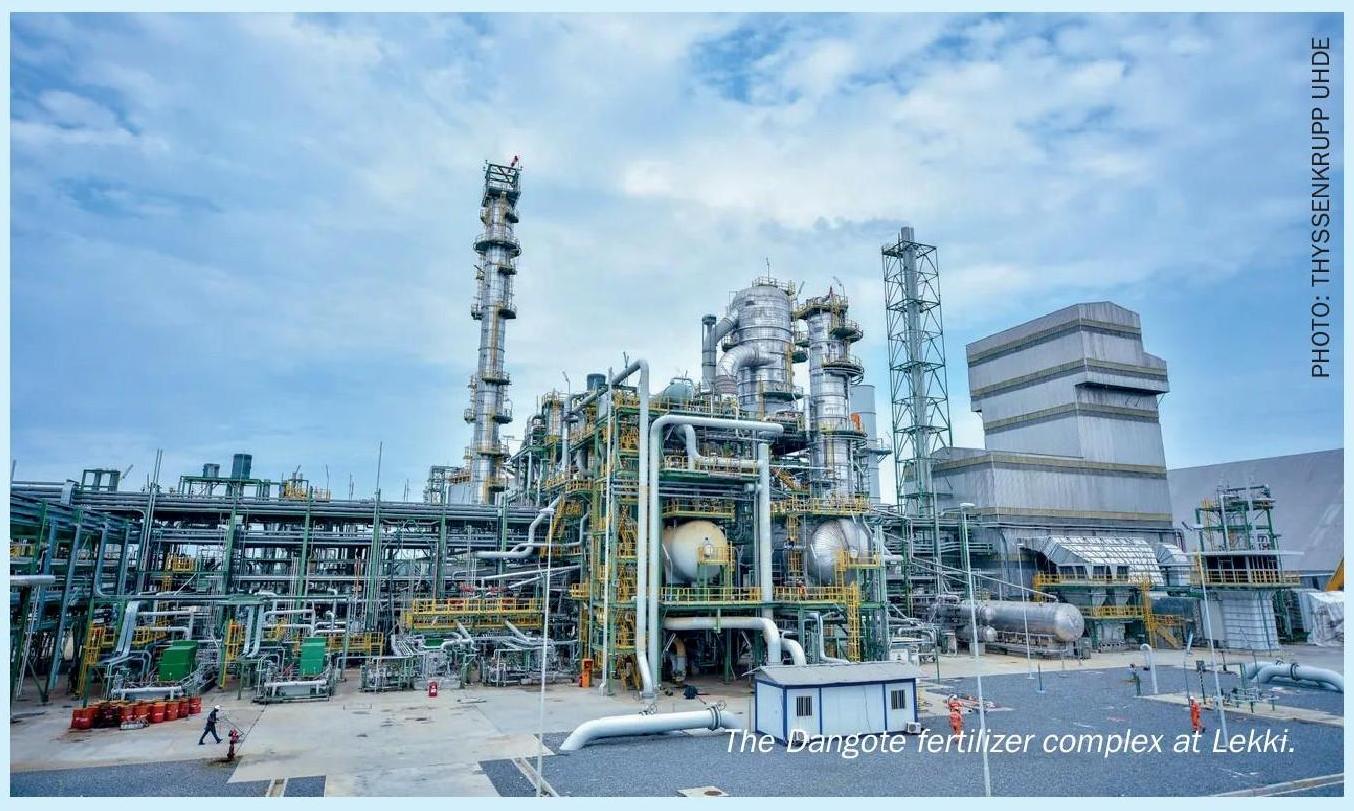Sulphur 411 Mar-Apr 2024
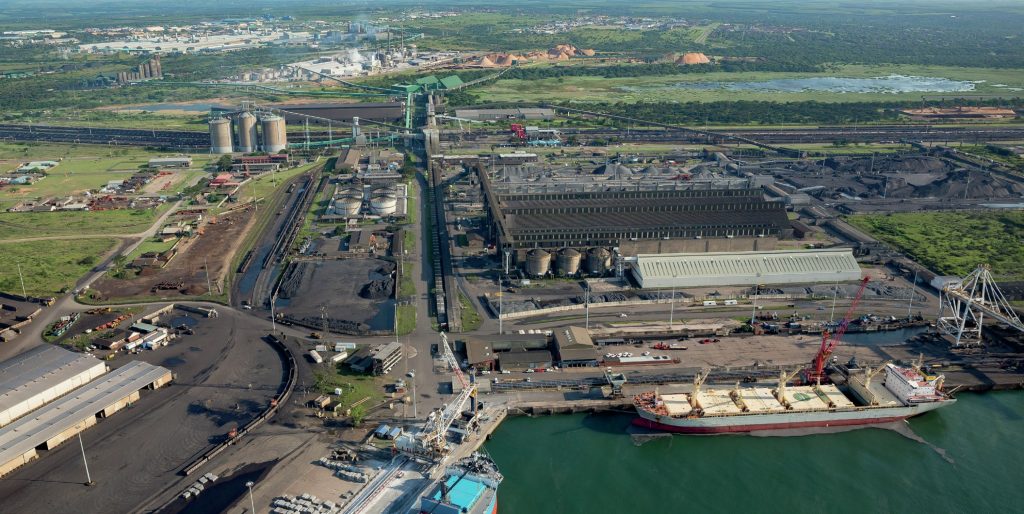
31 March 2024
Sulphur Industry News Roundup
Sulphur Industry News
KAZAKHSTAN
Contracts awarded for Kashagan expansion
Qatar construction services company UCC Holding has signed a memorandum of understanding with the Kazakh Ministry of Energy for a gas treatment plant at the Kashagan field with a capacity of 6 billion cubic meters as part of the Phase 2B expansion. The memorandum was signed by Minister of Energy Almassadam Satkaliyev and Mohamed Moutaz Al Khayyat, chairman of UCC Holding.
Progress on the gas processing plant has been complicated by issues with the previous contractor, GPC Investment, which was awarded the contract in 2020, but which had run into financing and project management issues that stalled the project in 2022. The Kazakh government subsequently bought GPC Investment for an undisclosed sum, paving the way for the new appointment, in conjunction with state pipeline operator and gas producer Qazaqgaz.
The gas processing plant will receive 1 bcm per year of gas from the Kashagan field. The Eni-led consortium that runs Kasahagan, the North Caspian Operating Company (NCOC), began construction of a pipeline to the site of the new facility in September last year. The gas processing plant will allow NCOC to increase oil output from Kashagan by 25,000 bbl/d. NCOC also includes ExxonMobil, Shell and TotalEnergies, alongside China National Petroleum Corporation, Inpex and Kazakh state player KazMunayGaz. Production at Kashagan is partially constrained by the gradually increasing share of associated gas in the flow of hydrocarbons to the surface, with the operator having to reinject produced gas into the reservoir. Qazaqgaz says that the new completion date for the processing plant is 2025.
In the meantime, NCOC and the Kazakh government appear to be closing in on a resolution to the ongoing dispute over sulphur storage at the project site. The government had tried to impose a $5 billion fine for allegedly storing sulphur in excess of permitted quantities for several months. The suit was rejected by a court last year, but the government had appealed the decision. Press reports suggest that an out of court settlement is under discussion involving dropping the fine in return for NCOC investing $100 million in social projects over two years.
BRAZIL
Brazil joins OPEC+
On January 1st Brazil became the newest member of the OPEC+ group of countries. However, it will not become a formal member of the Organisation of Petroleum Exporting Companies, nor will it be bound by OPEC oil production quotas. Instead it will remain effectively an associate member, like Russia and several other states like Mexico that help form the wider OPEC+ organisation. The reasoning is supposedly that Petrobas, while state owned, is a publicly traded company,
Brazil is a significant oil producer, with an output of 3.7 million bbl/d in 2022, and this is projected to rise to a peak of 4.8 million bbl/d by 2028, as the country exploits deep offshore oil fields. Petrobras has $102 billion of investment spending planned to 2028.
Speaking to OPEC ministers, Brazilian Minister of Mines and Energy Alexandre Silveira de Oliveira said that this was “a historic moment for Brazil and the energy industry and we look forward to joining this distinguished group… Brazil benefits significantly from the stability of oil and energy markets”.
NORWAY
Feasibility study on refinery conversion
Equinor ASA has let a contract to Aker Solutions ASA to execute a feasibility study for the proposed transformation of subsidiary Equinor Refining’s 226,000 bbl/d refinery at Mongstad, on Norway’s western coast, into a low-carbon industrial cluster equipped for production of blue hydrogen and sustainable aviation fuel (SAF).
The study aims to identify solutions to significantly reduce CO 2 emissions from the existing refinery and transform the site into a new low-carbon industry cluster whilst demonstrating safe, technical, and economically feasible solutions. The scope includes a new greenfield facility which will be developed to produce blue hydrogen from natural and refinery fuel gas, along with a carbon capture and export solution. It also covers a new facility to produce sustainable aviation fuel (SAF) from municipal solid waste with more than 70 % reduced emissions.
Aker Solutions’ consultancy will deliver a feasibility study for both new and existing facilities, integrating brownfield, greenfield and third-party technologies to examine options for future operations. Consultants and engineers from Aker Solutions’ Oslo, Bergen and Mumbai operations are involved, delivering expertise in onshore and downstream project execution, gasification, CO 2 storage, brownfield, and integration.
“We are excited to support Equinor on this truly transformational study, maximizing industrial synergies to produce low-carbon solutions and sustainable fuels at a time when decarbonization is very high on the agenda,” said Roddy Macpherson, senior vice president, consultancy at Aker Solutions.
“For decades, we have worked with customers and partners to minimize commercial uncertainty and enable informed decision-making for first-of-a-kind projects across the globe. Building on our strong engineering and construction expertise, and our understanding of the evolving energy system and landscape, we aim to drive change at pace for our customers. The Mongstad study will help to further accelerate Norway’s energy transition, transforming the country’s only remaining oil and gas refinery to create energy sources of the future.”
SWEDEN
Renewable fuels plant
Topsoe has signed a licensing and engineering agreement with Preem, Sweden’s largest fuel company, to produce sustainable aviation fuel (SAF) and renewable diesel, using Topsoe’s HydroFlex ™ technology. Preem is revamping a major isocracker unit at its refinery in Lysekil. The unit will have a capacity of 1.2 million m 3 / year (22,000 bbl/d) of sustainable aviation fuel and renewable diesel, with production expected to begin in 2027. Preem has a long-term target of producing 5.0 million m 3 /year (92,000 bbl/d) of renewable fuels, as well as achieving a climate neutral value chain by 2035. Once the revamped Lysekil refinery starts operating in 2027, Preem will become one of Northern Europe’s biggest producers of SAF. Demand for SAF is rapidly growing. According to the International Energy Agency’s Net Zero Scenario, over 10% of fuel consumption in aviation by 2030 needs to be SAF to stay on course for net zero CO2 emissions by 2050. In 2022, the International Air Transport Association estimated global SAF production to make up only around 0.1% to 0.15% of total jet fuel demand.
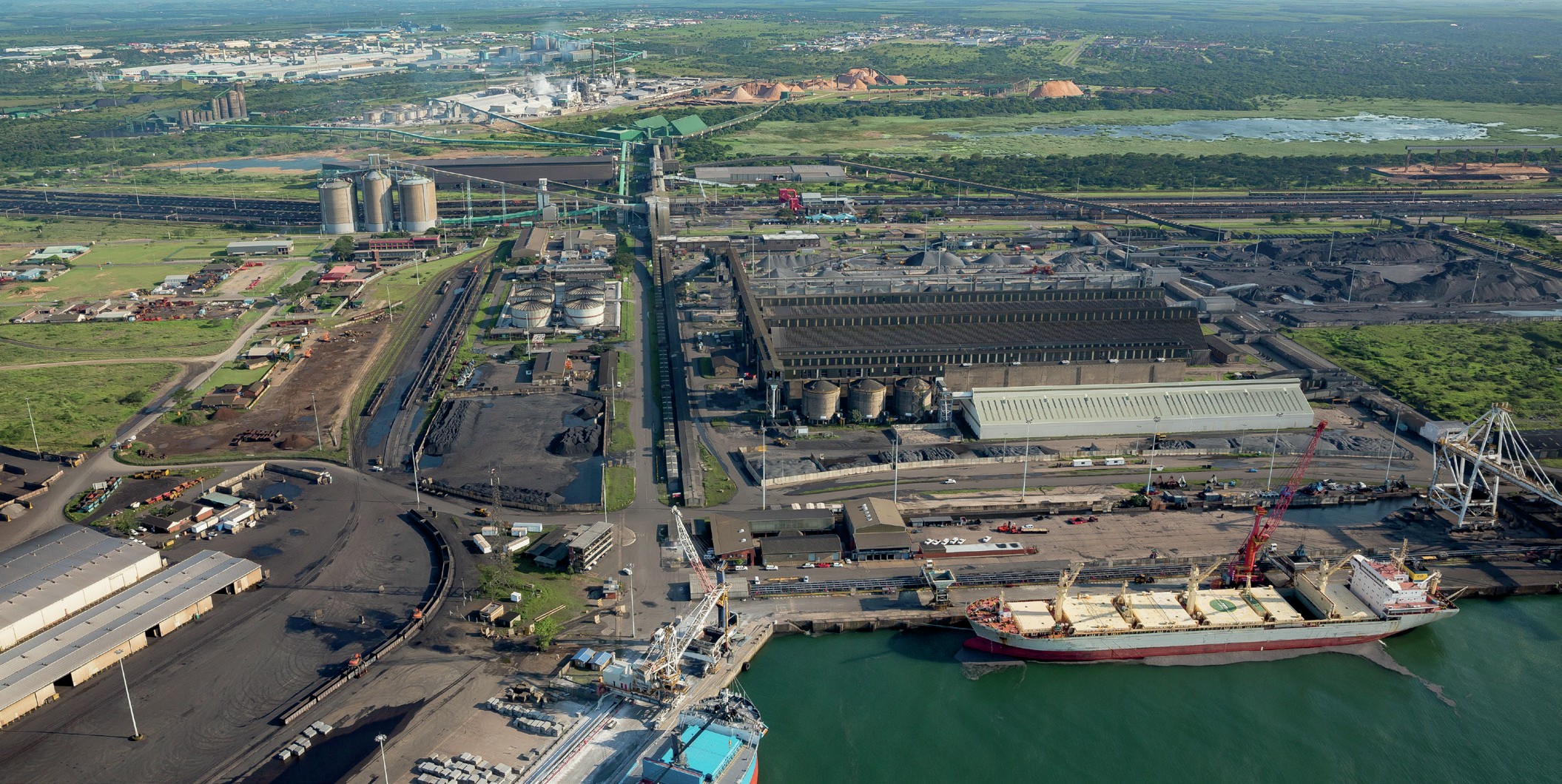
Elena Scaltritti, Chief Commercial Officer at Topsoe, said: “Society needs a significant upscaling of renewable fuels for aviation. We’re excited to take another step on the path to reduce carbon emissions in the transportation sector and aviation in particular. Together with Preem, we already have a proven track-record of delivering impactful results within renewable fuels production, and we’re looking forward to continuing working with Preem on this important task.”
SOUTH AFRICA
Reload Logistics acquires sulphur terminal
Reload Logistics has acquired a 50,000 m2 bulk sulphur terminal at Richards Bay, South Africa. The facility has 20,000 m2 of indoor storage of 20,000, a 10,000 m2 loading area, and has operations for simultaneous offloading, bagging, and loading for both rail and trucks of containerised or break-bulk cargo. Reload says that the acquisition, the latest in a series for the logistics company, is a strategic asset, empowering the company to deliver reliable and efficient services for the handling, storage, and distribution of sulphur and other dry bulk commodities to clients.
Since taking over the facility in November 2023, Reload Logistics says that it has made significant upgrades to the complex, equipment, and related systems, enhancing the discharge rate of sulphur vessels, and increasing the holding capacity of the undercover warehousing. These enhancements have allowed it to achieve a record for tonnage unloaded from a vessel in a 24-hour period.
“We are thrilled to share this news with our clients and the public. This acquisition and upgrade underscore our commitment to providing the best logistics solutions for our clients and the industry. We take pride in our team and the remarkable results they have achieved thus far,” said Michael-John Saunders, Managing Director of Reload Logistics.
UNITED STATES
Martin Midstream sees higher earnings in 4Q 2023
Martin Midstream announced better than expected results for the final quarter of 2023. Speaking at the company’s 4Q earnings call, CEO Bob Bondurant said that the company had achieved an adjusted earnings before interest, taxes, depreciation, and amortisation (EDITBA) of $29.2 million compared to a revised guidance of $26.9 million, an improvement of 9%. For the year, the company’s adjusted EBITDA was $117.7 million, with the Transportation segment the best earner. The second strongest cash flow generator in the fourth quarter was Martin’s Terminalling and Storage segment, which had adjusted EBITDA of $9 million. The Sulfur Services segment had adjusted EBITDA of $7.4 million compared to guidance of $6 million, with stronger fourth quarter sales compared to forecast for both liquid fertilizer and degradable sulphur products. There was strong sulphur production from the company’s refinery suppliers, with total sulphur volume received 17% greater than forecast. Next year adjusted EDITBA for million, higher than for 2023 because of the new electronic grade sulphuric acid (ELSA) project at Plainview, Texas. Construction of an oleum tower was begin in 2023, and $10.4 million is budgeted for the expansion in 2024. The plant will supply sulphuric acid to the DSM Semichem semiconductor joint venture, which includes Martin, Samsung, C&T America and Dongjin.
SAUDI ARABIA
Prayon to supply technology for Ma’aden 3
Prayon says that it has been as a technology provider for the merchant grade phosphoric acid plant that will form part of the Ma’aden Phosphate 3 Project. Prayon Technologies will provide the process for the new factory, which will be fitted with Prayon’s proprietary equipment, via its Process Filtration and Liquid Equipment division Profile.


